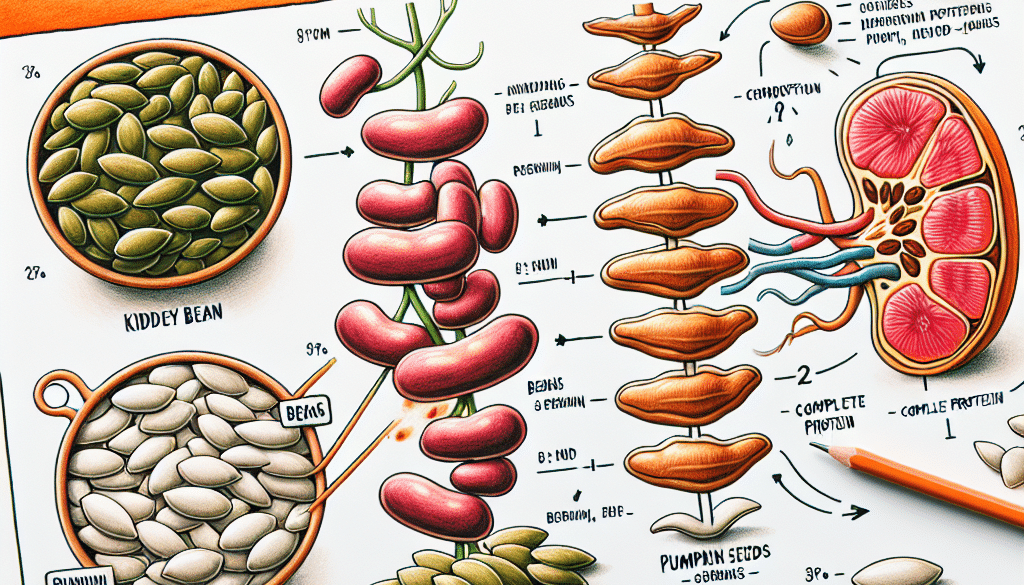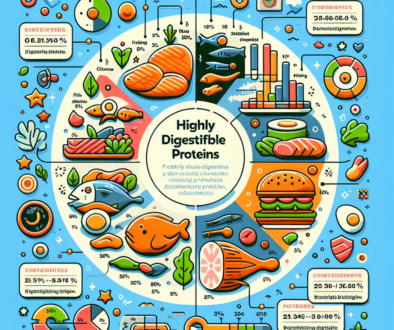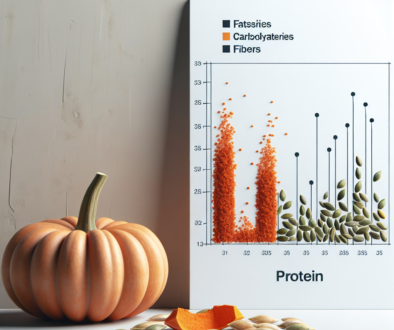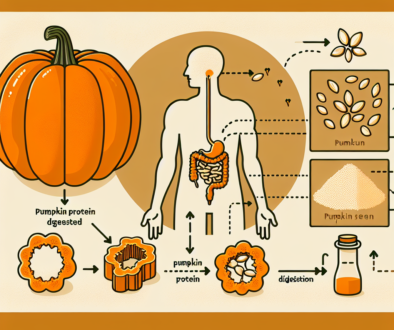Do Beans And Pumpkin Seeds Make A Complete Protein?
-
Table of Contents
- Complete Protein Combos: Do Beans and Pumpkin Seeds Fit the Bill?
- Understanding Complete Proteins
- Beans and Pumpkin Seeds: A Nutritional Powerhouse
- Scientific Evidence on Protein Complementation
- Case Studies and Statistics
- Practical Tips for Combining Beans and Pumpkin Seeds
- Conclusion: The Verdict on Beans and Pumpkin Seeds
- Explore ETprotein’s Plant-Based Protein Products
Complete Protein Combos: Do Beans and Pumpkin Seeds Fit the Bill?
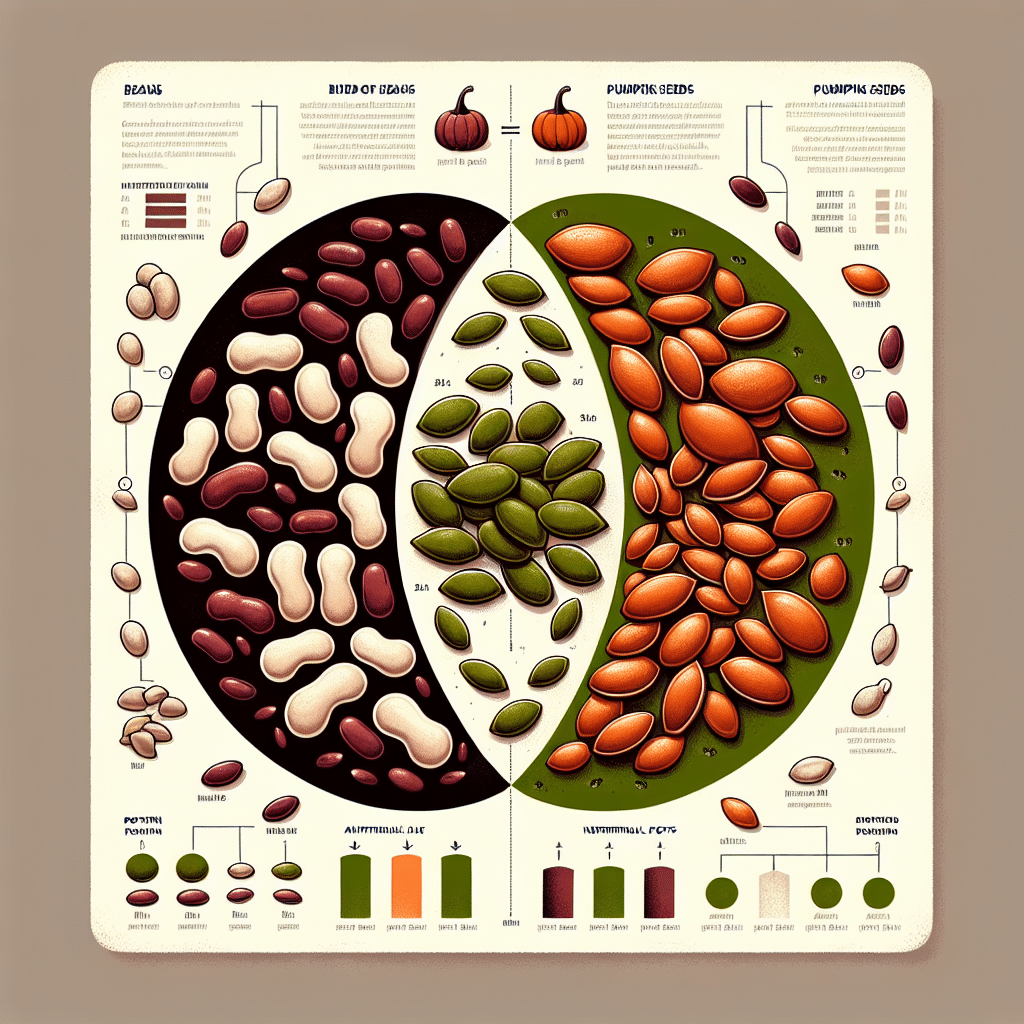
Protein is a vital macronutrient essential for the growth, repair, and maintenance of tissues in the body. Amino acids, the building blocks of protein, come in 20 different forms, nine of which are considered essential because our bodies cannot synthesize them. They must be obtained through diet. A complete protein source is one that provides all nine essential amino acids in sufficient quantities. For those following a plant-based diet, combining different plant proteins to achieve a complete amino acid profile is a common practice. In this article, we will explore whether the combination of beans and pumpkin seeds can create a complete protein, and how this pairing stacks up against other protein sources.
Understanding Complete Proteins
Before delving into the specifics of beans and pumpkin seeds, it’s important to understand what makes a protein “complete.” Animal-based foods like meat, dairy, and eggs naturally contain all nine essential amino acids in adequate proportions. However, most plant-based proteins are deficient in one or more essential amino acids, making them “incomplete” proteins.
The concept of protein complementation involves combining two or more incomplete protein sources that, when eaten together, provide all the essential amino acids. This is particularly relevant for vegetarians and vegans who need to ensure they are getting a balanced amino acid intake.
Beans and Pumpkin Seeds: A Nutritional Powerhouse
Beans are a staple in many diets around the world and are known for their high protein content. However, they are typically low in the essential amino acid methionine. On the other hand, pumpkin seeds are rich in methionine but lack lysine, which is abundant in beans. When combined, these two foods have the potential to complement each other’s amino acid profile, creating a complete protein.
- Beans: High in lysine, fiber, iron, and antioxidants
- Pumpkin Seeds: Rich in methionine, zinc, magnesium, and healthy fats
Scientific Evidence on Protein Complementation
Research has shown that consuming a variety of plant-based proteins throughout the day can provide all the essential amino acids your body needs. The idea that these proteins must be eaten together at the same meal has been largely debunked. The body’s amino acid pool and recycling of amino acids mean that as long as a diverse range of proteins is consumed, the body can manage to create complete proteins.
However, for practical and nutritional optimization, combining beans and pumpkin seeds in meals can be beneficial. For example, a salad topped with black beans and pumpkin seeds or a bean stew with a side of pumpkin seed-encrusted bread can be delicious ways to enjoy these complementary proteins.
Case Studies and Statistics
While specific case studies on the combination of beans and pumpkin seeds are limited, broader research into plant-based diets supports the efficacy of protein complementation. A study published in the American Journal of Clinical Nutrition found that diets with a variety of plant proteins can meet protein requirements when calorie intakes are adequate.
Statistics from the United Nations’ Food and Agriculture Organization indicate that plant-based proteins are on the rise globally, with an increasing number of people recognizing the health and environmental benefits of such diets.
Practical Tips for Combining Beans and Pumpkin Seeds
Here are some practical ways to include beans and pumpkin seeds in your diet:
- Snack on roasted pumpkin seeds and hummus.
- Add pumpkin seeds to bean salads for a crunchy texture.
- Make a bean burger and top it with a pumpkin seed pesto.
- Include both beans and pumpkin seeds in grain bowls or wraps.
Conclusion: The Verdict on Beans and Pumpkin Seeds
In conclusion, beans and pumpkin seeds can indeed make a complete protein when consumed as part of a varied diet. This combination is not only nutritionally beneficial but also versatile and delicious. By incorporating a mix of plant-based proteins into your meals, you can ensure a balanced intake of essential amino acids without relying on animal products.
For those interested in exploring high-quality plant-based protein options, ETprotein offers a range of products that can enhance your diet. Their pumpkin seed protein is an excellent choice for those looking to boost their protein intake with a complete amino acid profile.
Explore ETprotein’s Plant-Based Protein Products
ETprotein is dedicated to providing top-notch plant-based protein solutions. Their product line includes organic rice protein, pea protein, and of course, pumpkin seed protein, among others. These proteins are non-GMO, allergen-free, and characterized by a neutral taste, making them ideal for various applications in the food and beverage industry.
If you’re looking to incorporate more plant-based proteins into your diet or product offerings, consider ETprotein’s range of high-quality proteins. Contact them at sales(at)ETprotein.com to learn more or to request samples.
About ETprotein:
ETprotein, a reputable protein and L-(+)-Ergothioneine (EGT) Chinese factory manufacturer and supplier, is renowned for producing, stocking, exporting, and delivering the highest quality organic bulk vegan proteins and L-(+)-Ergothioneine. They include Organic rice protein, clear rice protein, pea protein, clear pea protein, watermelon seed protein, pumpkin seed protein, sunflower seed protein, mung bean protein, peanut protein, and L-(+)-Ergothioneine EGT Pharmaceutical grade, L-(+)-Ergothioneine EGT food grade, L-(+)-Ergothioneine EGT cosmetic grade, L-(+)-Ergothioneine EGT reference grade and L-(+)-Ergothioneine EGT standard. Their offerings, characterized by a neutral taste, non-GMO, allergen-free attributes, with L-(+)-Ergothioneine purity over 98%, 99%, cater to a diverse range of industries. They serve nutraceutical, pharmaceutical, cosmeceutical, veterinary, as well as food and beverage finished product distributors, traders, and manufacturers across Europe, USA, Canada, Australia, Thailand, Japan, Korea, Brazil, and Chile, among others.
ETprotein specialization includes exporting and delivering tailor-made protein powder and finished nutritional supplements. Their extensive product range covers sectors like Food and Beverage, Sports Nutrition, Weight Management, Dietary Supplements, Health and Wellness Products, and Infant Formula, ensuring comprehensive solutions to meet all your protein needs.
As a trusted company by leading global food and beverage brands and Fortune 500 companies, ETprotein reinforces China’s reputation in the global arena. For more information or to sample their products, please contact them and email sales(at)ETprotein.com today.

